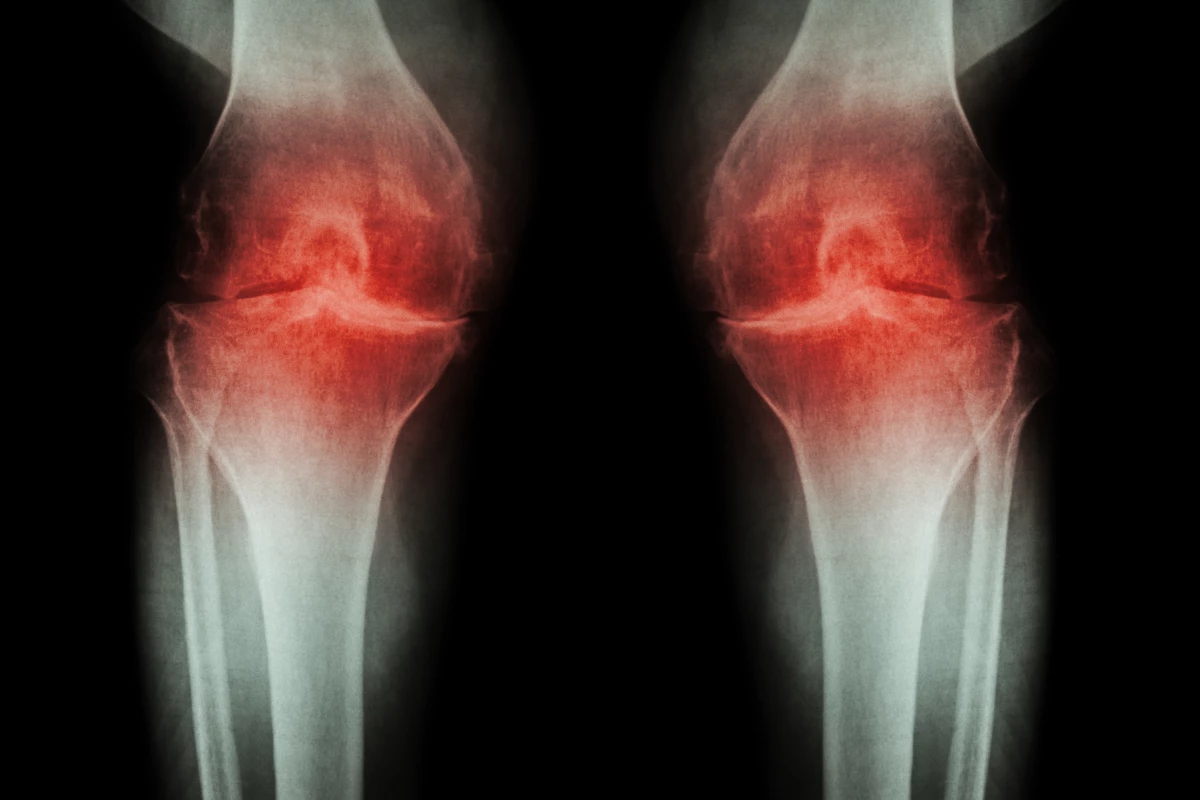New data presented at the Radiological Society of North America's annual meeting suggests long-term use of non-steroidal anti-inflammatory drugs (NSAIDS), such as naproxen or ibuprofen, can be associated with hastened progression of osteoarthritis symptoms. The researchers are cautious to stress the link is still observational and more work needs to be done to understand how these drugs could be linked to worsening arthritis inflammation.
The new research, led by Johanna Luitjens from the University of California, San Francisco, focused on the association between long-term NSAID use and an arthritis symptom called synovitis. The synovial membrane is the connective tissue that lines joints like our knees or wrists, and synovitis is when that membrane becomes irritated and inflamed.
“Synovitis mediates development and progression of osteoarthritis and may be a therapeutic target,” explained Luitjens. “Therefore, the goal of our study was to analyze whether NSAID treatment influences the development or progression of synovitis and to investigate whether cartilage imaging biomarkers, which reflect changes in osteoarthritis, are impacted by NSAID treatment.”
The researchers recruited over 1,000 subjects with moderate to severe osteoarthritis of the knee. Around one-quarter of the cohort received sustained NSAID therapy for over a year, while the remaining participants were not treated with the common painkillers. Each participant completed a knee MRI at the beginning of the study, and again four years later.
Evaluating a variety of MRI biomarkers of synovitis the researchers saw no long-term benefits from NSAID use over the four-year study period. In fact, markers of joint inflammation were unexpectedly worse in the NSAID group at the end of the study, compared to those not taking the anti-inflammatory drugs.
“In this large group of participants, we were able to show that there were no protective mechanisms from NSAIDs in reducing inflammation or slowing down progression of osteoarthritis of the knee joint,” said Luitjens. “The use of NSAIDs for their anti-inflammatory function has been frequently propagated in patients with osteoarthritis in recent years and should be revisited, since a positive impact on joint inflammation could not be demonstrated.”
Luitjens is careful to avoid suggesting NSAIDs are directly contributing to the worsening of synovitis over time. She says it is possible the anti-inflammatory effects of these drugs are not directly making the condition worse but instead, those taking these painkillers could simply be moving more and hastening the progression of their condition.
"… patients who have synovitis and are taking pain-relieving medications may be physically more active due to pain relief, which could potentially lead to worsening of synovitis, although we adjusted for physical activity in our model," added Luitjens.
Ultimately, the results of this preliminary study (yet to peer-reviewed and published in a journal) leave clinicians and arthritis patients in a tricky situation. NSAIDS are common pain-relieving agents for osteoarthritis patients, so there is no indication patients should stop taking these drugs for acute pain relief. However, according to Luitjens, the long-term use of NSAIDs as a way to reduce synovitis and slow the progression of osteoarthritis is in doubt after these findings.




